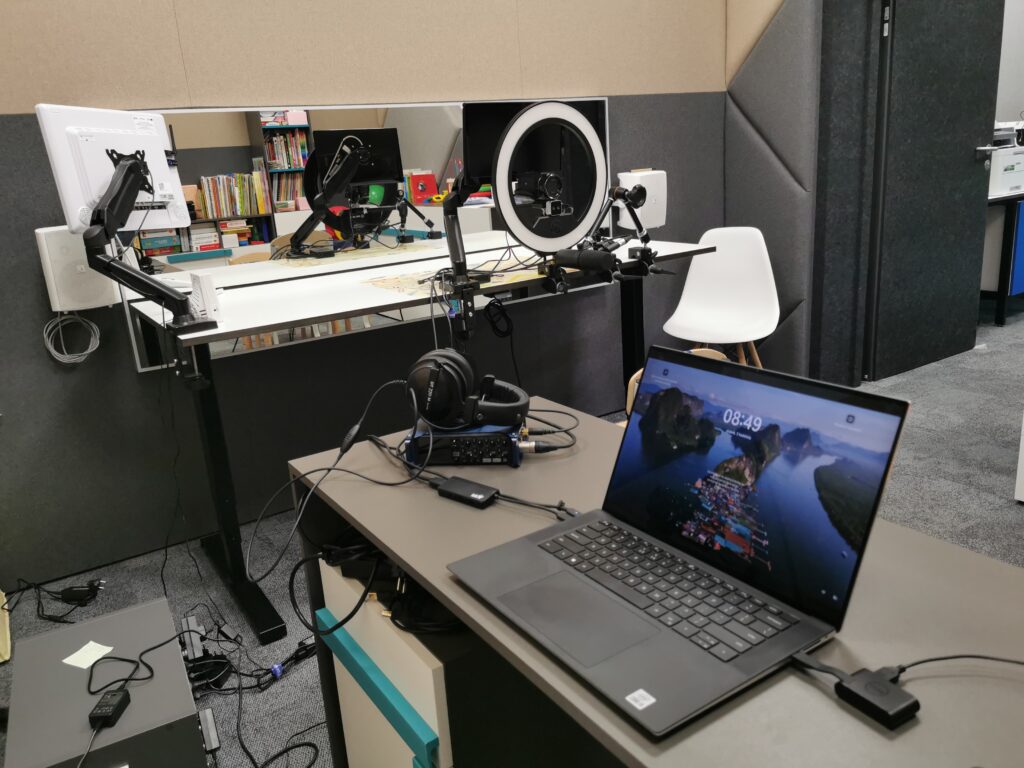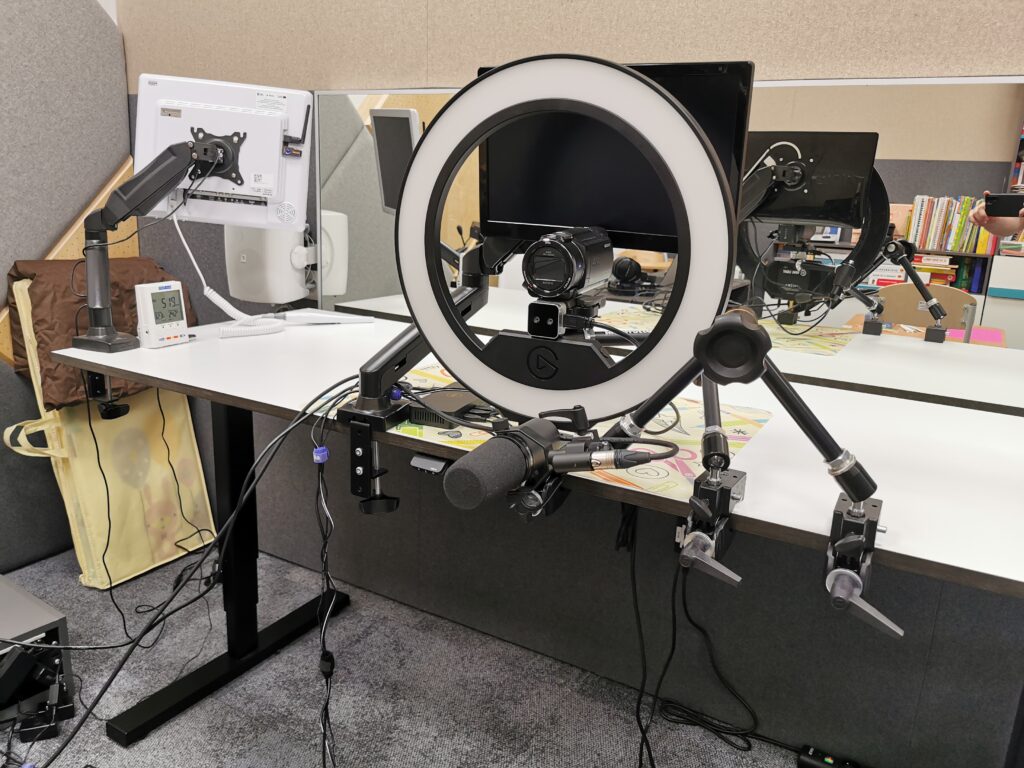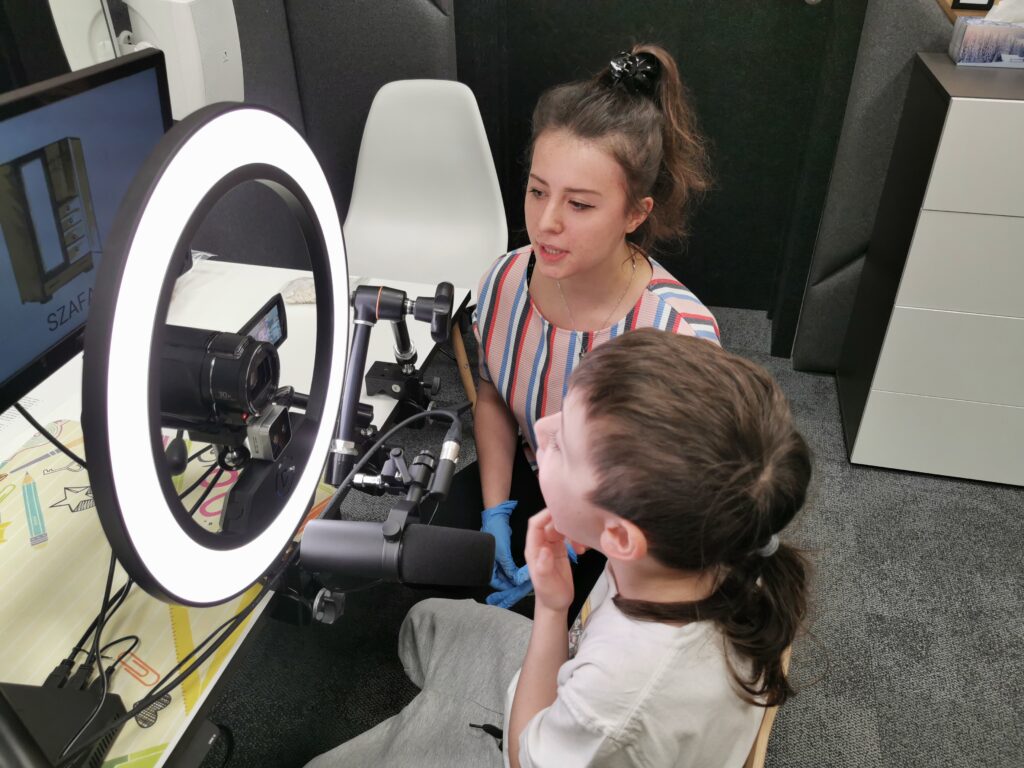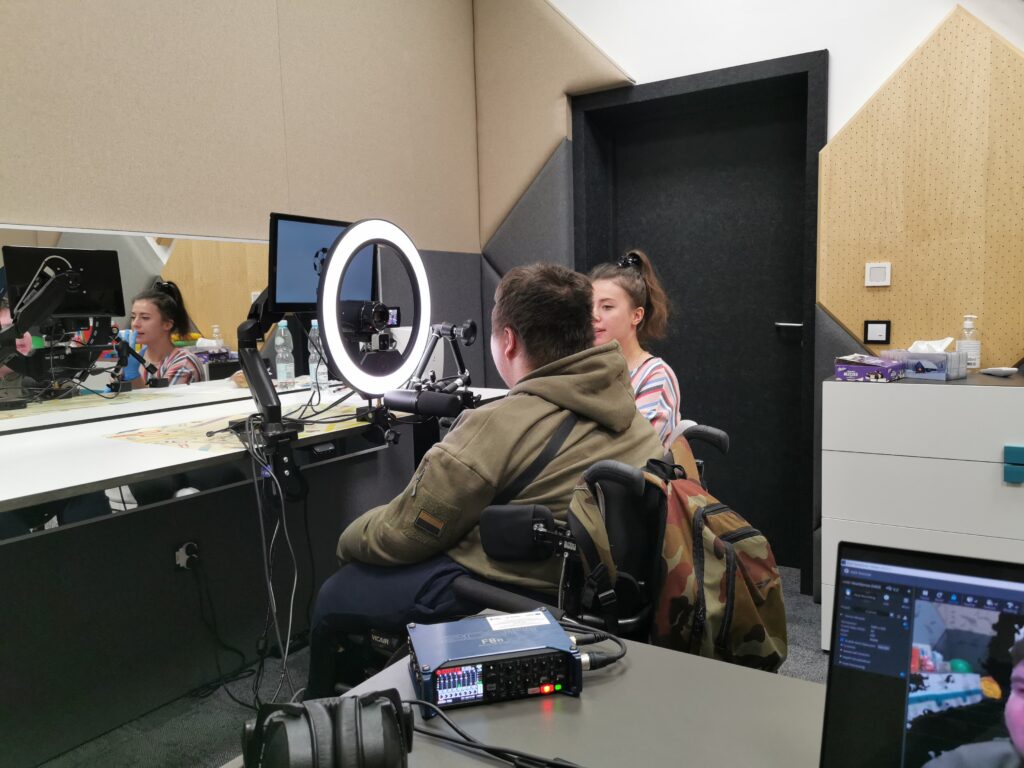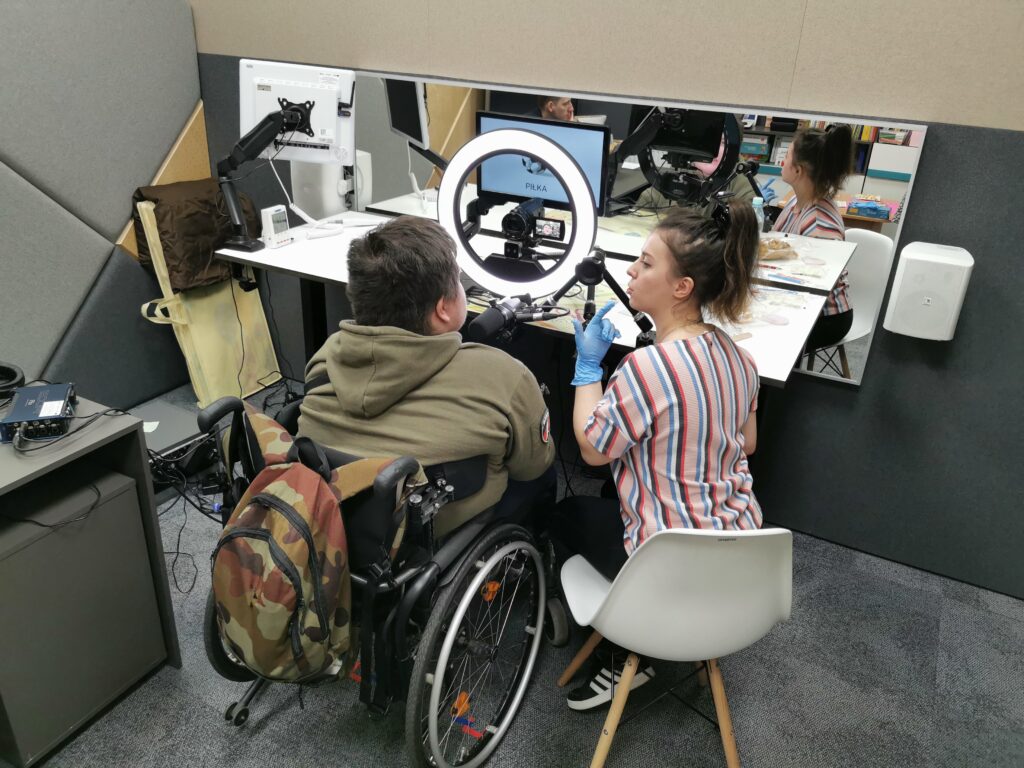Studies of children with DMD
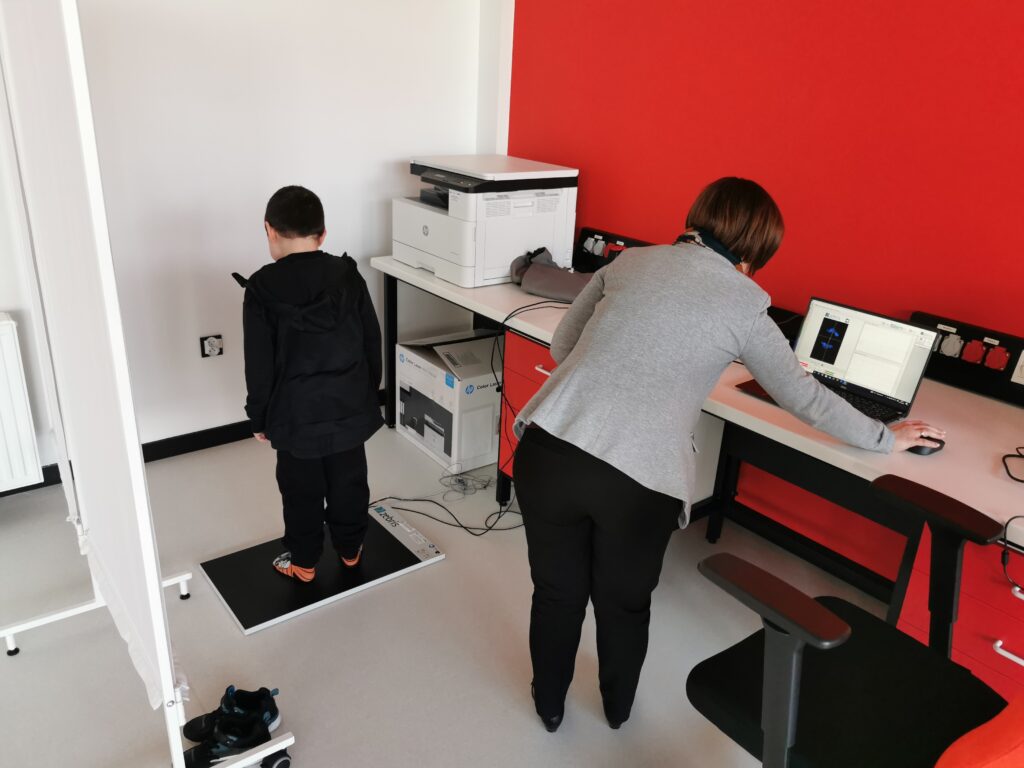
On 5 April 2024, EHTIC hosted a study for boys diagnosed with Duchenne Muscular Dystrophy (DMD).
Duchenne muscular dystrophy is a rare genetic disease that causes progressive and irreversible muscle wasting. Boys affected by the disease are affected from birth and as they grow older the negative effects of the disease include muscle and joint contractures, postural defects, inability to walk independently, move their arms and many more.
In a study conducted by Dr Katarzyna Jochymczyk-Woźniak, the ZEBRIS FDM-S and ZEBRIS FDM-3 platforms were used to analyse the distribution of static and dynamic force densities during standing and walking. The youngest patients participated in this research with undisguised enthusiasm and curiosity.
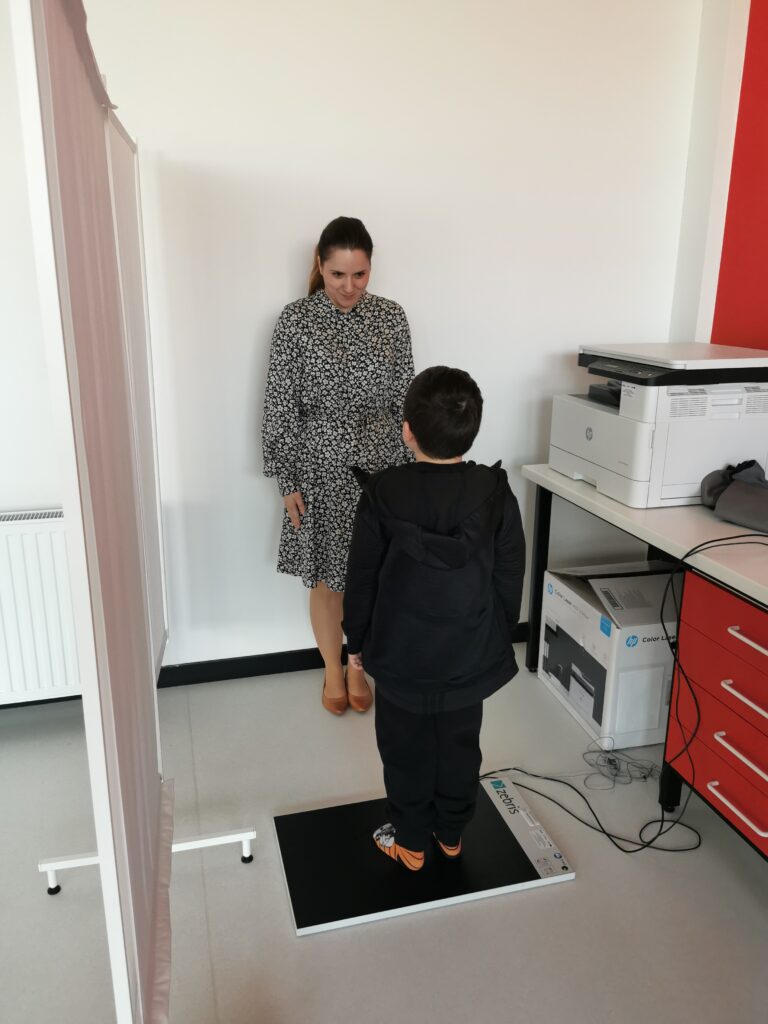
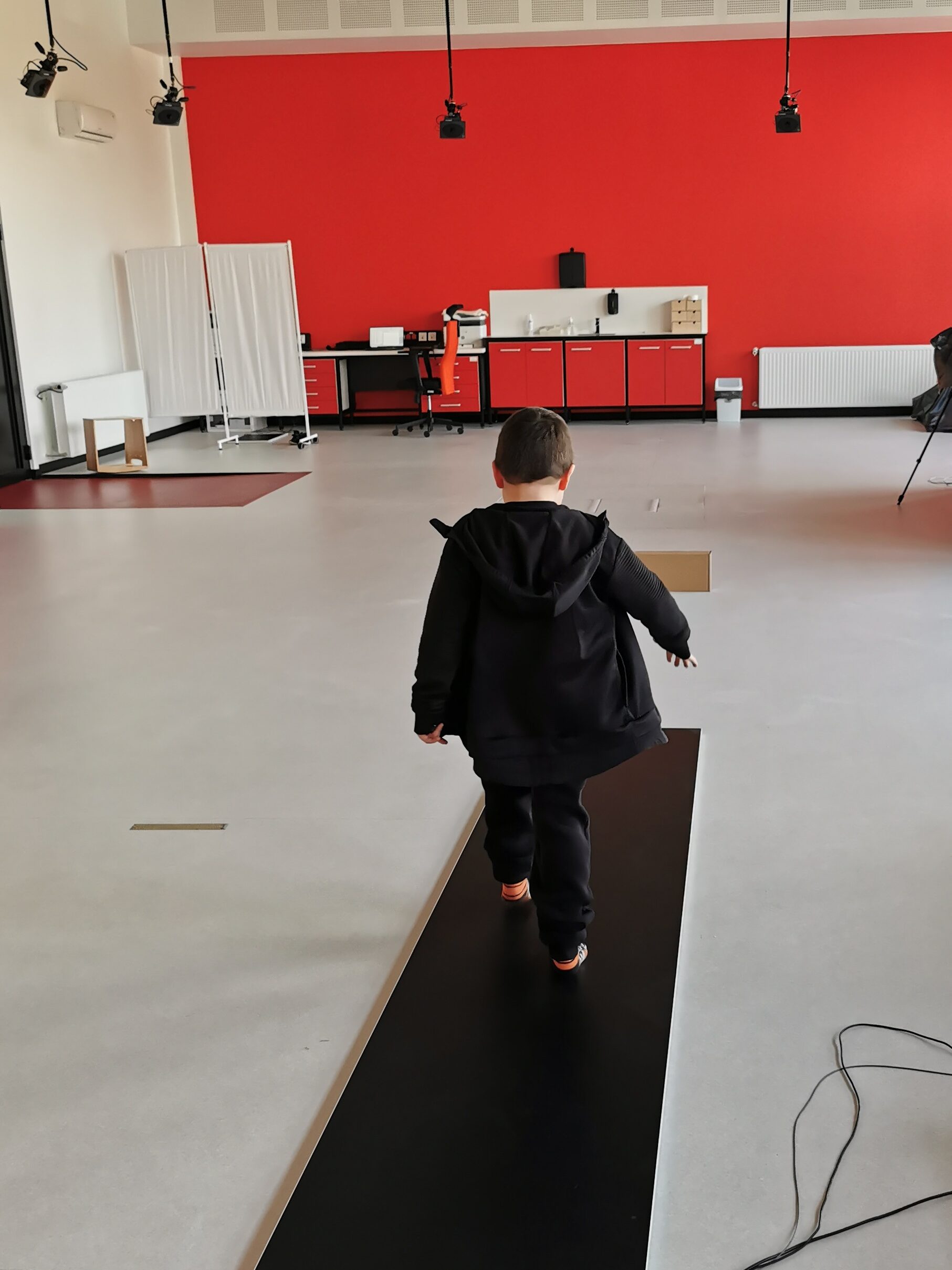
The speech therapy examination, conducted by Magdalena Krycha (a third-year speech therapy student at the University of Silesia in Katowice) supervised by Dr Natalia Moćko, included a picture test to check the realisation of Polish consonants, examination of the structure, motor activity of the speech apparatus and biting, chewing and swallowing functions.
A set of video cameras, a near-field stereovision camera and a measuring microphone were used for the measurements. The data obtained allowed for analysis of the functioning of the speech organs and subsequent analysis of the acoustic signal. The depth image obtained also allowed for the creation of three-dimensional models of the speakers’ faces for further analysis.
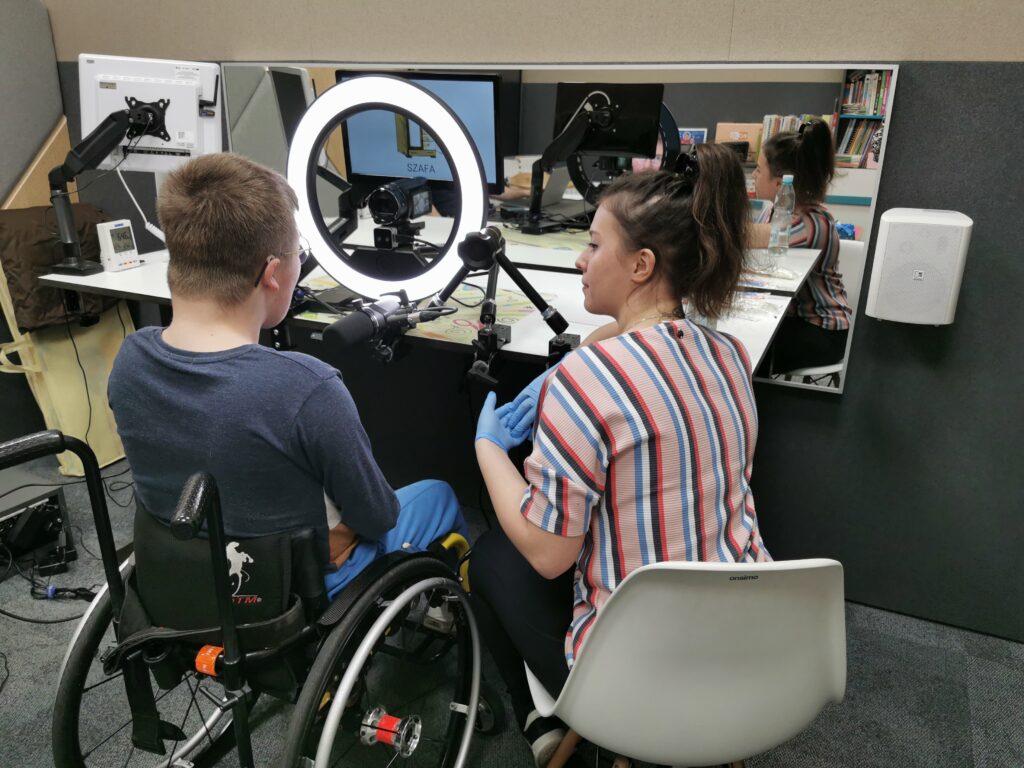
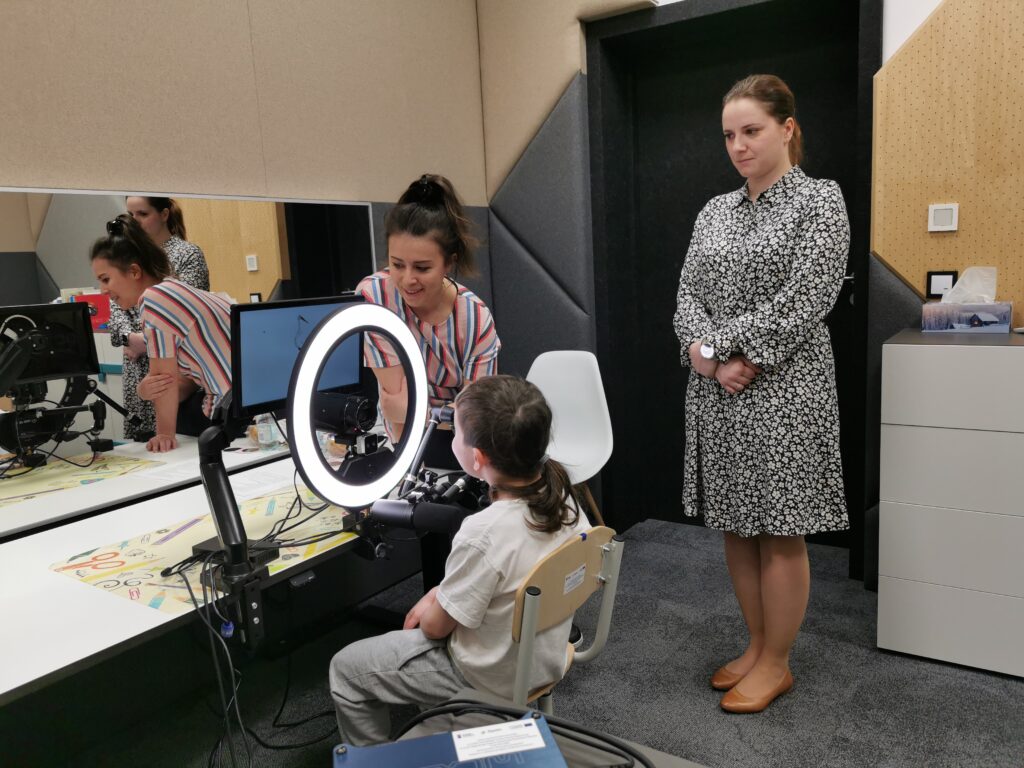
The set-up of the measuring station and the operation of the equipment were handled by Dr Michał Kręcichwost.
Thanks to the data obtained, an in-depth analysis of speech organ function is now possible, which opens up new research and therapeutic perspectives for boys with DMD.
